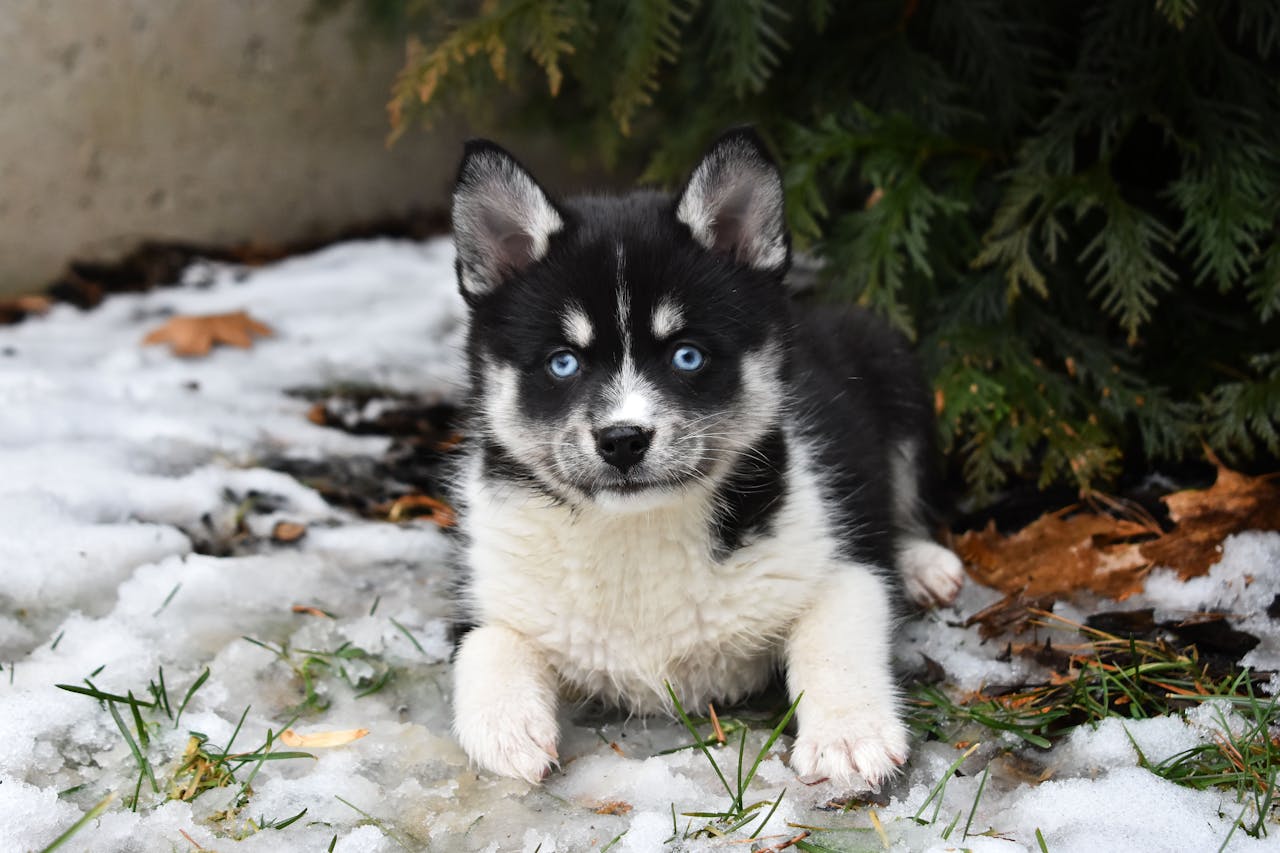Introduction to Pomsky Nutrition
If you’ve ever laid eyes on a Pomsky, you know just how irresistibly cute this breed is. But behind the fluffy coat and sparkling eyes lies a dog with unique nutritional needs. Feeding your Pomsky the right diet isn’t just about filling their bowl—it’s about keeping them energetic, healthy, and thriving throughout every stage of life.
Why Nutrition Matters for Pomskies
The right food keeps your Pomsky’s coat shiny, supports their energetic personality, and protects them from health issues like obesity, allergies, and joint problems.
Understanding the Pomsky Breed
Pomskies are a cross between a Pomeranian and a Siberian Husky. This means they can inherit traits from either parent, including size, metabolism, and activity levels—all of which affect their diet.
Nutritional Needs of a Pomsky
Protein Requirements
Protein is the building block of muscle and energy. A healthy Pomsky diet should include 20–30% protein from sources like chicken, turkey, beef, or salmon.
Healthy Fats for Energy and Coat Health
Pomskies have a thick double coat that benefits from omega-3 and omega-6 fatty acids. Salmon oil and flaxseed are excellent additions.
Essential Vitamins and Minerals
Vitamins A, D, E, calcium, and phosphorus support bone strength and immune health.
Carbohydrates in a Pomsky Diet
Carbs like sweet potatoes, brown rice, and oats provide energy but should not make up the bulk of their meals.
Best Foods for Pomskies
High-Quality Dry Kibble: Look for kibble with real meat as the first ingredient, no fillers, and balanced nutrients.
Wet Food Options: Wet food is flavorful and can encourage picky eaters. However, balance it with dry food to avoid dental issues.
Fresh and Homemade Meals: Some owners prefer cooking meals at home—think boiled chicken, rice, and veggies.
Raw Diets: Pros and Cons: Raw diets are trendy but can be risky if not balanced. Always consult your vet before switching.
Puppy vs. Adult vs. Senior Pomsky Diets
Pomsky Puppy Nutrition: Pomsky puppies need calorie-dense food with more protein and fat to support growth.
Adult Pomsky Food Needs: Adults thrive on a balanced mix of protein, fats, and carbs.
Senior Pomsky Diet Adjustments: Senior Pomskies may need fewer calories but more joint-supporting nutrients like glucosamine.
Portion Sizes and Feeding Frequency
How Much to Feed a Pomsky: Depending on size, Pomskies typically eat 1 to 2 cups of food per day, split into two meals.
Feeding Schedules and Routines; Consistency is key. Feeding at the same times daily helps digestion and reduces begging behavior.
Foods to Avoid for Pomskies
Toxic Human Foods: Never feed chocolate, grapes, onions, garlic, or xylitol.
Low-Quality Commercial Foods: Avoid brands packed with fillers like corn, soy, and artificial flavors.
Overfeeding and Obesity Risks: Pomskies love treats, but too many can lead to obesity.
Special Dietary Considerations
Allergies and Food Sensitivities: Signs of allergies include itchy skin, digestive issues, and ear infections. Limited-ingredient diets can help.
Grain-Free vs. Grain-Inclusive Diets: Grain-free isn’t always better. Some Pomskies do well with whole grains like oats and barley.
Supplements for Pomskies: Glucosamine for joints, probiotics for digestion, and omega oils for skin and coat health are beneficial.
Tips for Choosing the Right Pomsky Food Brand
Reading Dog Food Labels: Always check for meat-first ingredients and avoid artificial preservatives.
Avoiding Fillers and Artificial Ingredients: Stay clear of food with too many by-products or chemical additives.
Recommended Food Brands for Pomskies: Some popular vet-recommended brands include Blue Buffalo, Wellness Core, and Orijen.
Homemade Recipes for Pomsky Meals
Balanced Chicken and Rice Recipe: Boiled chicken breast with brown rice and peas.
Beef and Sweet Potato Mix: Lean ground beef, sweet potato, and carrots.
Adding Veggies and Healthy Oils: A drizzle of olive or salmon oil adds extra nutrients.
Hydration and Water Intake for Pomskies
Pomskies are active and need constant hydration. Always keep fresh, clean water available.
Training Treats and Snacks
Healthy Store-Bought Treats: Look for treats made with real meat and no artificial colors.
Homemade Treat Ideas: Try baked pumpkin bites or frozen yogurt cubes.
Common Feeding Mistakes to Avoid
- Free-feeding without portion control
- Switching foods too quickly
- Feeding too many table scraps
Monitoring Your Pomsky’s Weight and Health
Regular vet check-ups and monitoring your dog’s body condition score help prevent obesity.
Conclusion
Your Pomsky deserves the best, and nutrition is the foundation of their well-being. By choosing high-quality foods, balancing nutrients, and avoiding common pitfalls, you’ll help your Pomsky live a long, healthy, and happy life.
FAQs
What is the best food for Pomskies?
High-quality kibble with real meat as the first ingredient is ideal.
Can Pomskies eat human food?
Only safe options like boiled chicken, rice, and some vegetables. Avoid toxic foods.
How often should I feed my Pomsky?
Two meals a day are best for digestion and energy.
Do Pomskies need supplements?
Not always, but omega oils and joint supplements can be beneficial.
Can Pomskies eat grain-free food?
Yes, but whole grains are also safe if your Pomsky isn’t allergic.
